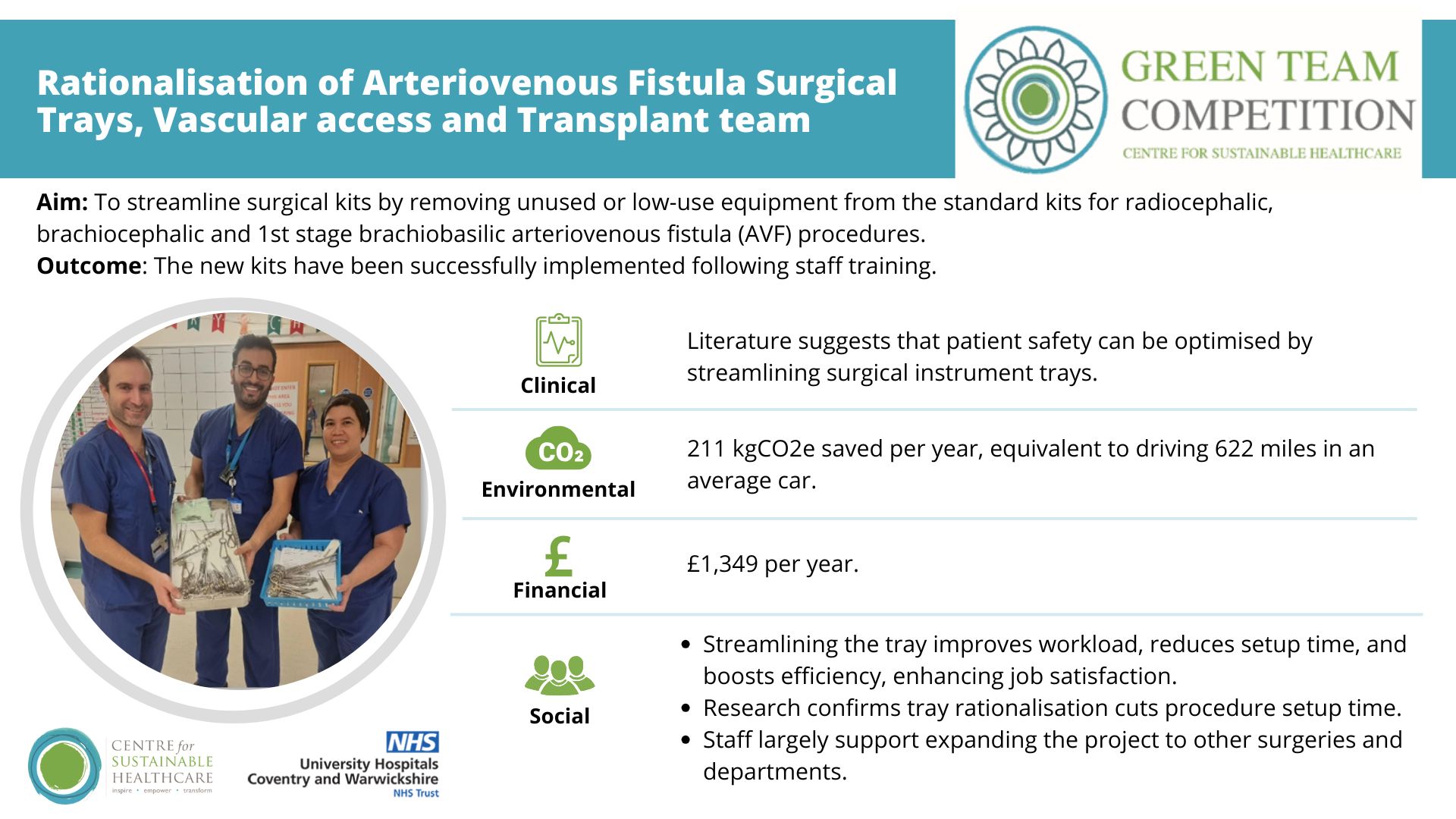Project completed as part of the 2024 Coventry and Warwickshire NHS Integrated Care System Green Team Competition.

Team members:
Mr. John O’Callaghan, Vascular access and Transplant Consultant (Lead)
Mr. Mohammed Aldaamsah, Vascular access and Transplant senior clinical Fellow (Lead)
Catherine Ancheta, Clinical lead general, renal and vascular theatres
Mr. Farhan Ahmad, Vascular access and Transplant senior clinical Fellow
Mr. Muhammad Kama, Vascular access and Transplant senior clinical Fellow
Mr. Hamza Ahmad, Vascular access and Transplant junior clinical Fellow
Setting / patent group: Vascular surgery
Issue:
Operating theatres can account for up to 25% of a hospital’s carbon footprint. Many reusable items included in surgical kits are not used, which means they are sterilised unnecessarily, contributing to carbon footprints and financial costs. Reducing unnecessary instrumentation on surgical trays can minimise this waste and reduce healthcare costs. Current kits used for arteriovenous fistula (AVF) surgeries contain significantly more items than are required for the basic operation. By removing unused or low-use equipment from standard kits, these instrument sets can be streamlined to improve sterilisation efficiency, enhancing cost-effectiveness and environmental sustainability.
Intervention:
The current system was studied by creating an item inventory of the current kits and conducting an audit of current practice using a tray tracking form. Instrument usage levels and their environmental impact were determined. After identifying instruments eligible for removal from the primary kit, staff were engaged to discuss the proposed changes. The surgeons and consultants endorsed the changes. Theatre staff were trained on the updated tray and its usage as a primary option for surgeries. The backup trays were kept for exceptional circumstances.
Outcomes:
- Environmental
This change in surgical trays is estimated to reduce CO2e emissions from 456.48kg CO2e to 245.50kg CO2e, resulting in 210.98kg CO2e less emissions per year.
- Social
Staff have initially agreed that streamlining the tray would positively impact workloads, reduce setup time and improve efficiency. A follow up survey to staff will be conducted after a defined period of use.
- Clinical
It is expected that patient safety will be optimised by streamlining the surgical instrument trays by improving clarity, which reduces the chances of errors during instrument counting and evaluation.
- Financial
Due to reduced tray sterilisation costs and fewer sterilisation cycles, the optimisation of sterilisation trays has yielded a total annual cost savings of £1,348.96. There is also the potential for long-term savings due to the minimisation of unnecessary wear and replacement of equipment.
Key learning point:
The removal of 24 unused instruments from AVF surgical trays significantly improved financial efficiency, environmental sustainability, and operational workflows. To ensure lasting impact, the revised tray configuration will continue to be monitored by the surgical team. This methodology has the potential for broader application in other surgical specialties with extensive instrument requirements.
Please log in or sign up to comment.